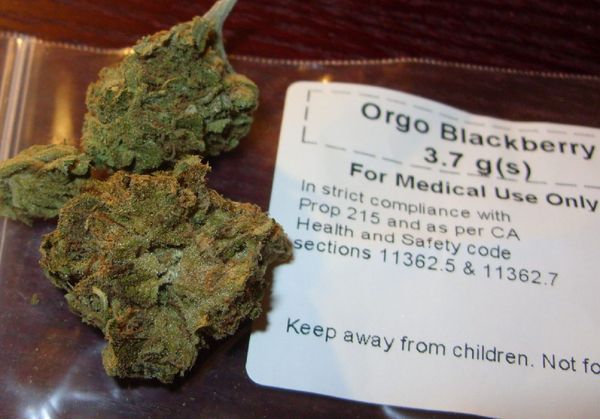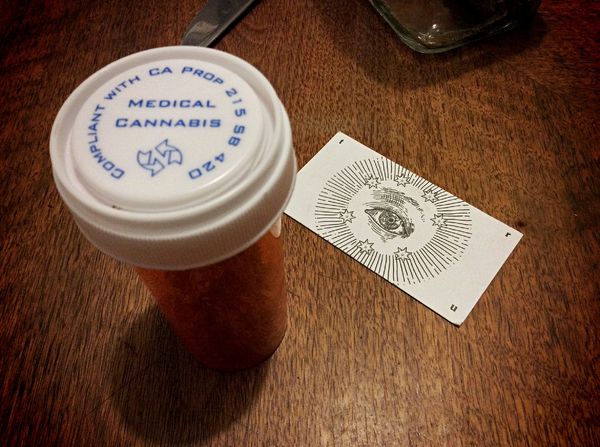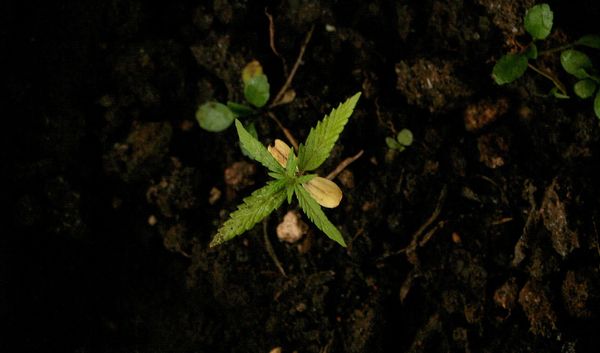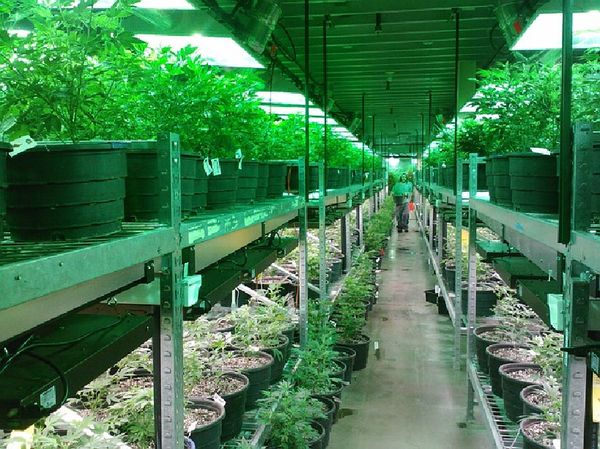- For some time now, army veterans in the United States have been requesting that their doctors can prescribe them medicinal marijuana to treat the pain and stress they suffer as a result of conflicts they have served in. However; once again Congress has rejected a petition that could improve the lives of the almost 22 million former combatants living in America.

Last February, a two-party coalition of legislators presented a draft bill in the House of Representatives in the United States. Its purpose was to allow doctors in states where medicinal marijuana has been legalised, to prescribe medicinal marijuana to army veterans who suffer serious injuries and chronic illnesses (such as post-traumatic stress), as a consequence of work they have done for their country.
The proposal outlined that those professionals would have access to marijuana just like any other patient who needs it. However, a few days ago the draft brill was voted on. The House decided, 213 to 210 votes that doctors, at least for the moment, will remain without permission to prescribe marijuana to those patients, due to direct prohibition from the United States Department of Veteran Affairs.
Tom Angell, the founder of 'Marijuana Majority', an organisation created to raise awareness about the need to regulate cannabis, believes that the House’s decision is “disappointing”. He thinks this because it means “carrying on with meaningless rules” when it has been shown that medicinal marijuana works on serious illnesses. Despite the results, he also considers the 210 “yes” votes to be a good sign of what is to come. “This is only the start of all of the votes that will take place in Congress this year and we expect to win a lot more than we lose”.

In turn, the democrat Earl Blumenauer, who is the main driving force behind the proposal, also believes that despite the defeat, the large amount of support received, shows there are many in Congress who are in support of marijuana. In fact, last year the same vote failed by 222 to 195 votes, so on this occasion, support has increased considerably.
Furthermore, he wanted to complain about the inequality suffered by veterans, as while approximately 213 million people in the United States have access to marijuana for medical reasons, only veterans are denied this right. He also wanted to condemn the fact that politicians who oppose cannabis regulation have been providing false information to give the impression that different varieties of marijuana do not have medicinal applications. Meanwhile, in many cases, they support excessive opiate based treatments.
Blumenauer argued that many veterans are prescribed painkillers than can lead to addiction and overdosing, but that “nobody dies because of a marijuana overdose”. The rate of fatal overdoses among veterans since the 9/11 terrorist attacks, is almost double the national average according to a report from 2013.
Currently, American law prohibits doctors from the Department of Veteran Affairs from advising their patients to consume cannabis for medical purposes, in accordance with recommendations from the Office of Drug Control Policy, which tries to classify cannabis under the same type of substances as heroin or LSD.
In fact, of the more than 20 states that permit the use of medicinal marijuana, only 10 (and Guam) authorise medical practitioners to prescribe it for post-traumatic stress disorder. That is one of the main illness suffered by former military personnel. Nevertheless; no doctors can recommend it to a military veteran.
However; in February, the United States congress did approve draft legislation to help to evaluate, care for and prevent suicides among war veterans, as well help them to improve their mental health.
Post-traumatic stress (PTSD) in ex-combatants from the wars in Afghanistan and Iraq has caused 8,000 suicides a year; this means that 22 people lose their life every day because of it, according to striking estimations from a 2012 study carried out by the Department of Veteran Affairs. The suicide rate for soldiers aged between 18 and 24 who receive psychological help also increased from 46.1 for every 100,000 in 2009 to 79.1 for every 100,000 in 2011.
This is an excessive amount of deaths that Obama’s government would like to halt with the draft bill and greater resources in order to urgently treat the problems of a large number of suicides among ex-combatants while they await medical treatments. The extra resources will be provided through the allocation of 22 million dollars to hire more psychiatrists and other mental health professionals.
The Veteran’s Association, an institute that has more than 300,000 full-time employees, has been under the spotlight for some time now after being accused of alarming deficiencies in its medical facilities. In fact, the media condemned the fact that sometimes, the long wait for medical care has had fatal consequences in a substantial number of cases. For now, it seems that cannabis will also have to wait in order to help fight this life and death battle.

In view of this, Paul Culkin, who worked in Iraq as a bomb-disposal officer and who now leads a group of patients in New Mexico who need marijuana, believes that just as soldiers commit themselves to their country on the battlefield, so too should they be able to enjoy the best medical treatment when they return home. Marijuana is a proven and legitimate medicine and the Department of Veteran Affairs should begin listening to scientific fact.
Likewise, the clinical psychologist Mitch Earleywine, from the University at Albany, thinks it is a “scandal” that men and women who have risked their lives for the freedom of their country are now forced to put their own freedom at risk to obtain a medicine “that works for them”.
Blumenauer believes that post-traumatic stress and traumatic brain injuries can be more harmful and damaging that injuries which are visible on the outside, and have a devastating effect of sufferers and their families. He considers it necessary to allow those veterans to have access to medicine that will help them to survive and make progress “without anyone treating them like criminals or overshadowing them”.

Despite the fact that the prohibition on prescribing cannabis to this group of people has been maintained, Blumenauer states that the strong amount of support received is a clear sign that new legislation “with common sense” is not far away. It could perhaps arrive with the passing of a similar amendment next year, thanks to a rise in legislators who have a liberal stance on marijuana. Additionally, the constant advances being made in all kinds of cannabis research mean that there is an increasing number of politicians and citizens who understand that marijuana can be a great help in the fight against certain illnesses and social stigmas.
------------------




Comments from our readers
There are no comments yet. Would you like to be the first?
Leave a comment!Did you like this post?
Your opinion about our seeds is very important to us and can help other users a lot (your email address won't be made public).